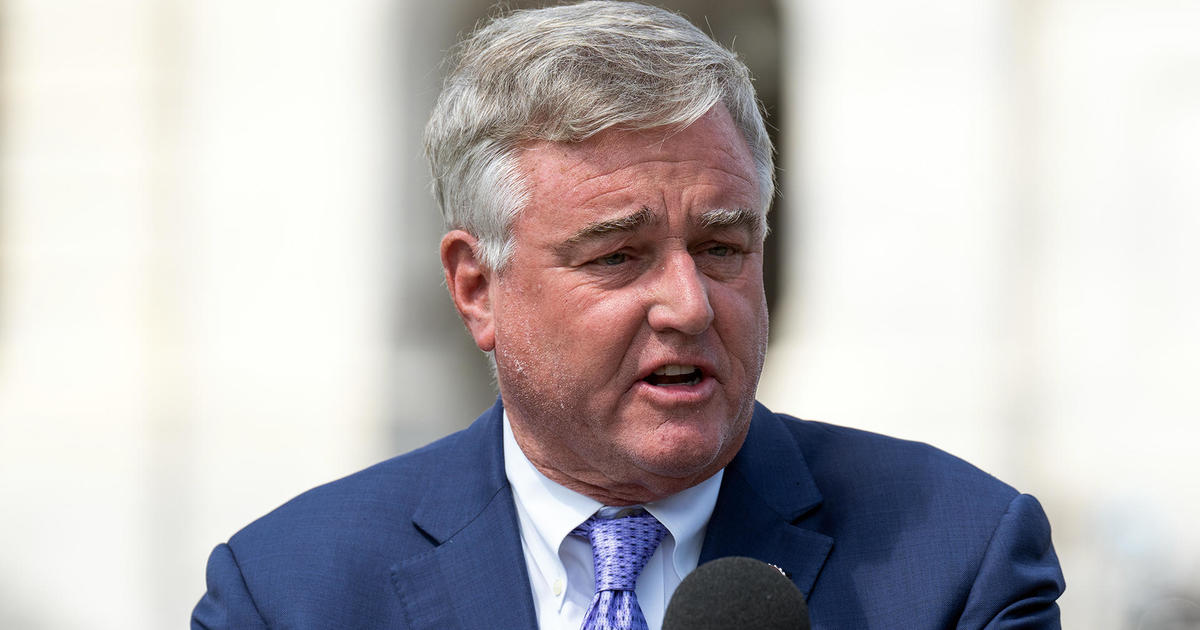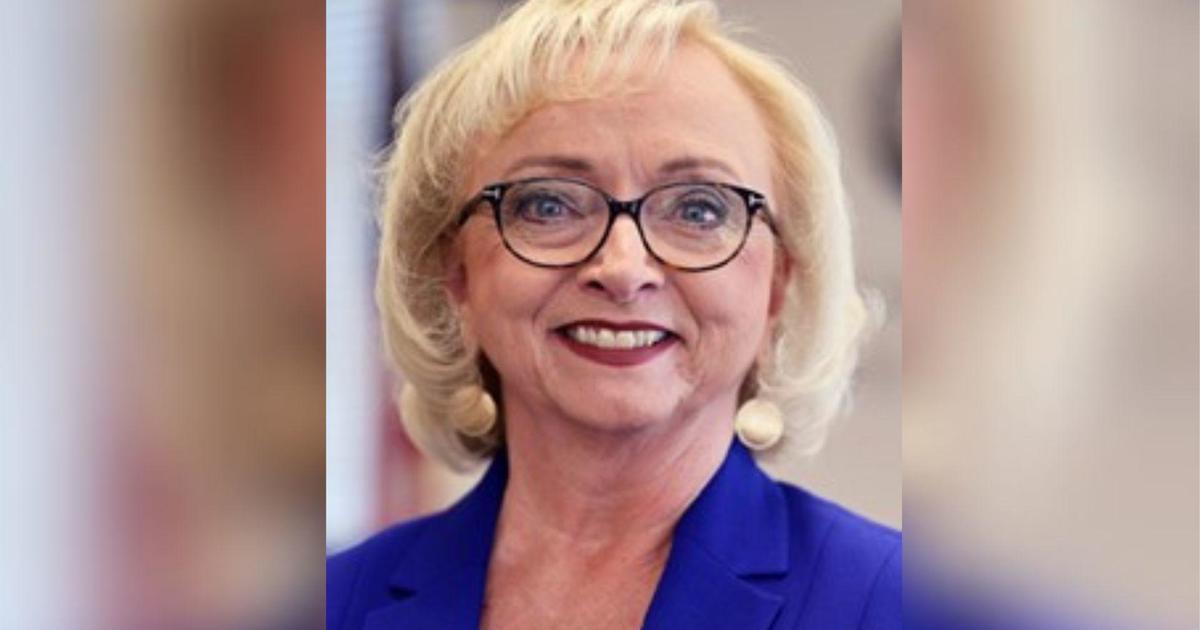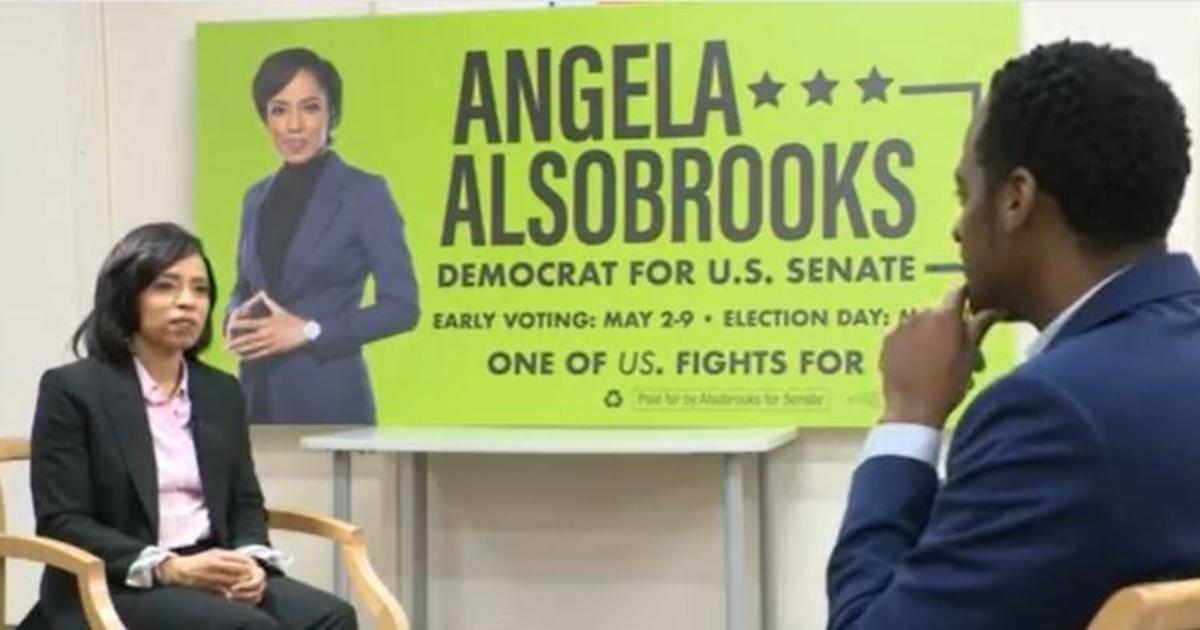Some House Candidates In Redrawn District Don't Live There
FREDERICK, Md. (AP) — In the crowded and competitive race for Maryland's only open congressional seat, some of the better-known candidates don't actually live in the district and they blame the lingering effects of partisan gerrymandering, which has gotten new attention and court challenges recently in the state and beyond.
Indeed, voters have not had a chance to vote for an actual resident of the district in the last two general elections. The district, which extends from the suburbs of the nation's capital to the West Virginia border, has been criticized as one of the state's most gerrymandered.
Rep. John Delaney, a three-term Democrat who does not live in the 6th District, isn't running for re-election because he's seeking the Democratic nomination for president in 2020. Delaney's last two Republican opponents, Dan Bongino in 2014 and Amie (AH'mee) Hoeber in 2016, also did not live in the district.
Hoeber, who is running again for the GOP nomination against Lisa Lloyd, Bradley St. Rohrs and Kurt Elsasser, cites partisanship in drawing the boundaries as one reason people outside the district have been running.
"I would prefer to live inside it, and if it were drawn properly I would live inside it. But the issue here is that I am literally about the distance from here to that first car over there outside the district lines," Hoeber said in the parking lot of an early voting center in Frederick.
Others say the competitiveness of the district is the draw. Although Democrats who controlled the governor's office and the General Assembly in 2011 redrew it to boost Democrats in what had been a steady Republican district, Delaney barely survived the challenge from Bongino.
The U.S. Supreme Court this month declined to rule on a challenge to the process. The case on redistricting for political gain, which was only in a preliminary phase, will now go to trial.
Candidates who can do so are underscoring their residency and strong local ties. Del. Aruna Miller, a Democrat, is highlighting her work as a state legislator in the district since 2011 and her emphasis on constituent services.
"People want to know that I'm accessible, that I'm able to resolve the issues and problems that they present to me, and sometimes it could be as simple as contacting the director of a department to resolve that issue, sometimes it could be as complex as proposing a piece of legislation," Miller said.
Among the candidates who have entered the race is the co-owner of a national wine megastore chain who is pumping his own money into the race. The name of David Trone, co-owner of Total Wine & More, is on blue-and-green signs throughout district. His opponents, in a Democratic primary with eight candidates, are quick to take aim at his willingness to use his fortune, while Trone contends self-funding frees him from special interests he says have spoiled Washington.
"A lot of it goes to: you still got to get your message out, because the career politicians, that's all they do," Trone said while taking a break from greeting morning commuters on the first day of early voting at a subway stop in the Maryland suburbs of Washington. "It's all they do is politic 52 weeks of the year, and an outsider, a businessman like myself, is an underdog."
Two years ago, Trone broke a record as the biggest self-funder for a U.S. House candidate when he spent $13.4 million in a failed primary bid for the 8th District congressional seat next door, where he lives. So far, in this 6th District campaign, he has reported spending about $10 million of his money.
"I would like to see him run in his own district. I guess he did that already," said Andrew Duck, who lives in the district in Brunswick. Duck has won the Democratic nomination twice before and lost to former Republican Rep. Roscoe Bartlett, who held the seat for 20 years before the lines were redrawn in 2011 to include more Democrats from Montgomery County.
State Sen. Roger Manno, George English, Chris Graves and Christopher Hearsey also are running in the Democratic primary.
Anne Davis, a Democrat from Boyds who voted for Miller in early voting, described her as a personally engaged legislator.
"She's concerned about people and about relationships as well as the technical aspects," Davis said. "Technically, she's super, but she's also concerned about all of the people aspects of what she's doing, which is what I want in a congressperson."
Marjorie Shankle, a Republican, said she voted for Hoeber, after receiving lots of mail from her campaign.
"I didn't get anything from the others — wasn't familiar with them," said Shankle, of Frederick.
Some voters said they are weighing the fact that Maryland no longer has a woman in the state's congressional delegation. Charla McKoy, a Democrat in Frederick, said that influenced her vote for Dr. Nadia Hashima. McKoy said it bothers her that a state once well-known for electing women to Congress no longer has one there.
"I think it's important, because every day I put on the TV, I see Congress and the Senate and all of these men making bad choices, and I need somebody with some sense in there to make some better choices," McKoy said.
Follow @WJZ on Twitter and like WJZ-TV | CBS Baltimore on Facebook
(© Copyright 2018 The Associated Press. All Rights Reserved. This material may not be published, broadcast, rewritten or redistributed.)



